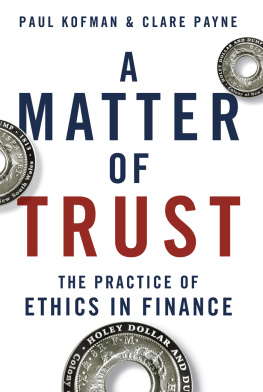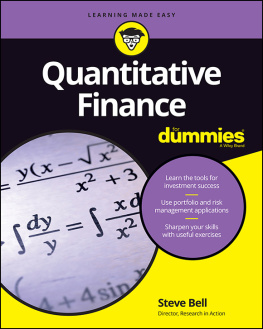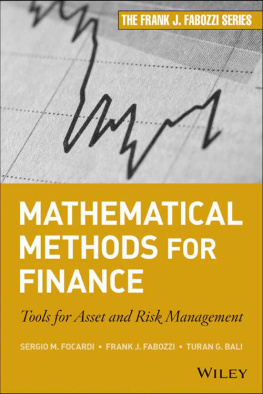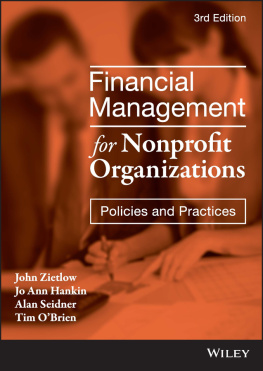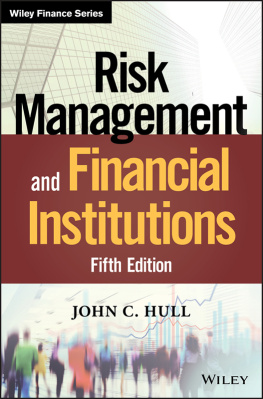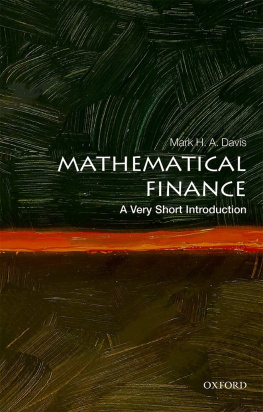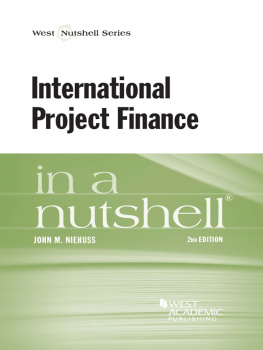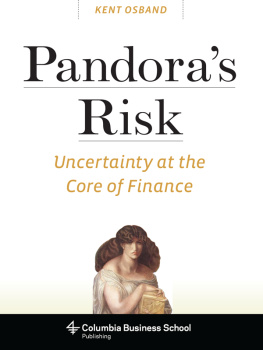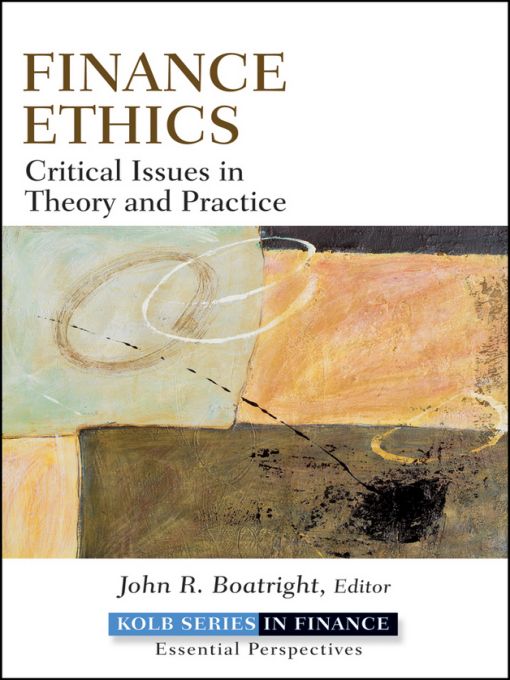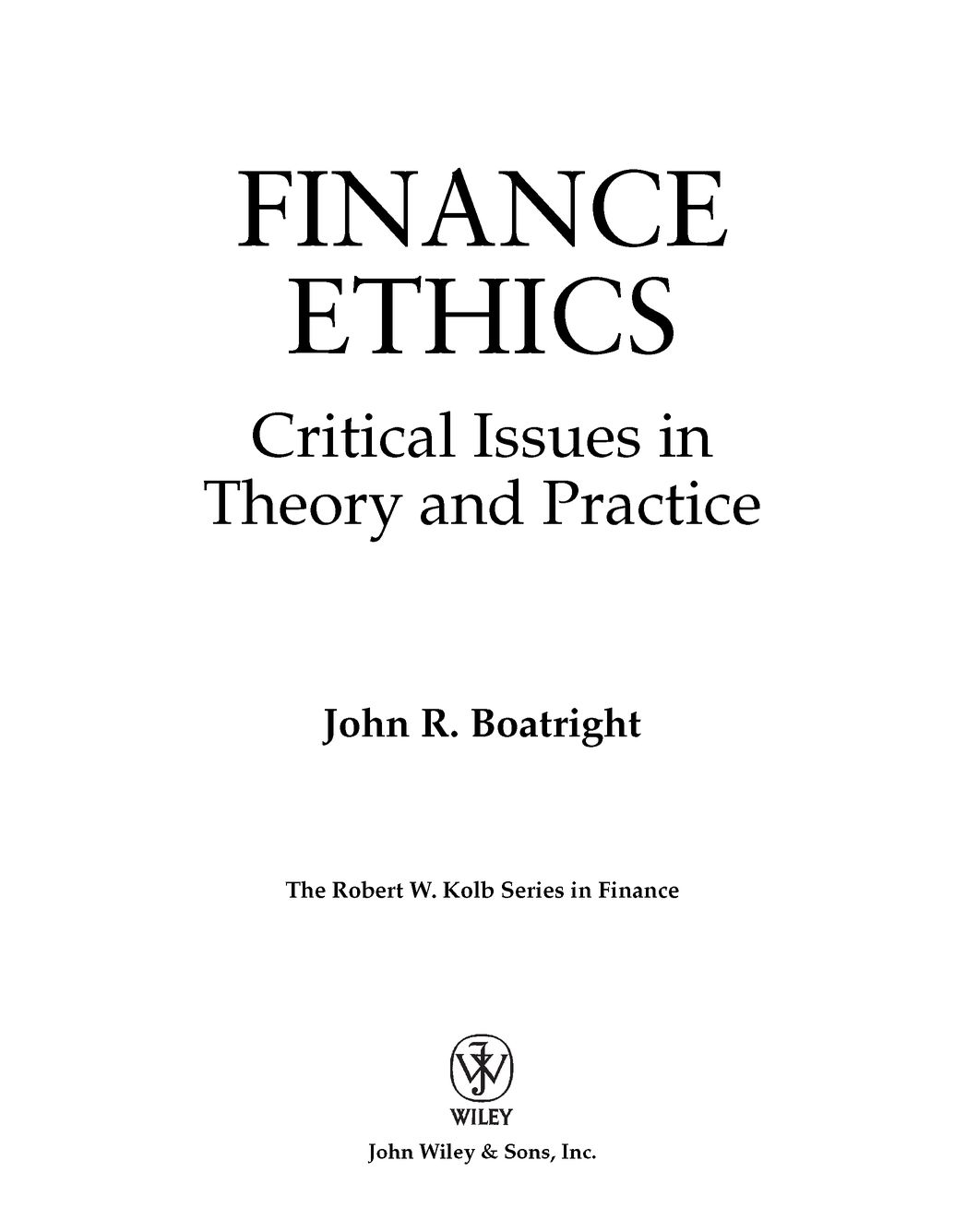Table of Contents
The Robert W. Kolb Series in Finance series provides a comprehensive view of the field of finance in all of its variety and complexity. The series is projected to include approximately 65 volumes covering all major topics and specializations in finance, ranging from investments, to corporate finance, to financial institutions. Each volume in the Kolb Series in Finance consists of new articles especially written for the volume.
Each Kolb Series volume is edited by a specialist in a particular area of finance, who develops the volume outline and commissions articles by the worlds experts in that particular field of finance. Each volume includes an editors introduction and approximately thirty articles to fully describe the current state of financial research and practice in a particular area of finance.
The essays in each volume are intended for practicing finance professionals, graduate students, and advanced undergraduate students. The goal of each volume is to encapsulate the current state of knowledge in a particular area of finance so that the reader can quickly achieve a mastery of that special area of finance.
PART I
Overview
CHAPTER 1
Ethics in Finance
JOHN R. BOATRIGHT
The Raymond C. Baumhart, S.J., Professor of Business Ethics,
Graduate School of Business, Loyola University Chicago
INTRODUCTION
Although finance raises many ethical issues, the academic study of finance ethics has received surprisingly little attention from scholars in either finance or business ethics. The neglect by finance scholars is understandable given the research paradigm in the field, which not only excludes normative questions from study but also demands the use of particular analytical tools and methodologies. For most finance scholars, the task of addressing ethical issues is simply not what they are trained to do. Business ethicists, who have the training, often ignore finance ethics due to unfamiliarity with financial theory and practice. This book is intended to advance the understanding and appreciation of the critical ethical issues in financial theory and practice and to encourage academic research and instruction by scholars in both finance and business ethics. To this end, it draws together the contributions of distinguished scholars from a wide range of disciplines, including finance, economics, philosophy, management, and law, and from many parts of North America and Europe. Because this book offers authoritative surveys of problem areas as well as original scholarly works, it constitutes a valuable resource for students and general readers interested in finance ethics. The task of this introductory chapter is to provide an overview of the field of finance ethics that organizes the ethical issues in finance and introduces the various chapters that follow.
Finance may be defined broadly as the generation, allocation, exchange, and management of monetary resources. The main topic areas in finance so defined are (1) personal finance by which individuals save, invest, and borrow money in order to conduct their private lives; (2) corporate finance by which business organizations raise capital through the issuance of securities and allocate it to its most productive uses; and (3) public finance by which government raises revenue through taxation and borrowing and spends it to provide services to its citizens. These activities are facilitated or mediated by a variety of financial markets and financial institutions, such as securities and commodities exchanges, commercial and investment banks, insurance companies, mutual and pension funds, and the like. In addition, finance includes the academic subject called finance that is studied in business schools and constitutes the training that people in financeboth scholars and practitionersreceive. Accordingly, the subject of finance ethics can be conveniently divided into four parts: finance theory, financial markets, financial services, and financial management. This framework is employed in this book as the major organizing principle.
Finance ethics as an academic field is concerned with the moral issues that arise in each of these four areas and with the moral norms that apply to the activities that take place in them. Although the academic study of finance ethics is relatively new, the examination of these issues and norms is of long standing since they form the basis of much of the regulation of financial markets and institutions, including industry and firm self-regulation, and underlie much of the popular concern with financial activity that is reflected, among other places, in the business press. From the very beginning of rudimentary financial activity, people have raised questions about what is fair in markets and what are the rights and duties of participants in these markets. And as financial institutions have grown in size and importance, ethical concerns about fairness, rights, and duties have arisen about their operation. Despite the popular cynical view that there is no ethics in finance, a moments reflection reveals that finance could not exist without it. Without an assurance of fairness and the observance of basic rights and duties, no one would make exchanges in a market or place their assets with financial institutions. So even if finance ethics as an academic field of study is relatively new, consideration of the ethical issues in finance has a long and rich history.
Given this history of concern, it is the lack of recognition of ethics in finance, and not the present attention it is receiving, that requires explanation. One reason for this oversight is the ubiquity of law and regulation in finance, which has had two effects. One effect is to obscure the role that ethics has played in the development of law and regulation, which has been guided by moral considerations to the extent that in advanced economies much of what is unethical is also illegal. Ethical issues in finance are often perceived as merely legal or regulatory matters, thus disguising the role of ethics in law and regulation. The other effect is to leave the role of prescribing conduct and developing rules to law and regulation or to public policy. People who work in the financial world often believe that the task of creating and enforcing ethical rules and standards is the job of legislators and regulators, not themselves. Within finance theory, ethical issues are typically conceptualized as side constraints, externalities, or market failures, which they often are; but the effect of this conceptualization is to dismiss these issue as problems to be addressed by law and regulation or by public policy and not considered within the field of finance. Conversely, people in finance often contribute to the discussion of ethical issues and even lobby, sometimes aggressively, on proposed laws, regulations, and public policies without realizing that they are addressing ethical matters. Thus, ethics is actually a pervasive subject of concern in finance without being recognized as such.
FINANCE THEORY
Finance as an academic field is an area of applied economics that is scarcely more than half a century old. Prior to 1950, the main concerns of modern finance theorynamely, the functioning of credit markets and the pricing of assetswere largely ignored or dismissed by economists as unsuitable topics for economic analysis. Financial markets were viewed by economists such as John Maynard Keynes as mere casinos or beauty contests, in which assets were not priced in any rational way that could be described by economic laws. Before the development of finance theory, practicing traders operated by gut feelings or rules of thumb derived from experience, which they thought enabled them to take advantage of underlying trends that could be detected and charted but whose sources remained mysterious.


